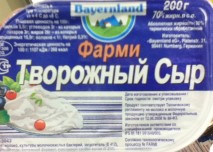One day I wanted cheesecake.
Actually, maybe I should revise that statement.
Every day I want cheesecake. Yeah, that’s more accurate.
I ran into a wall, though, when I didn’t have a working oven, measuring cups, fancy ingredients, or cooking utensils. After an hour of searching, I found a recipe for a no-bake cheesecake that seemed too good to be true. While I still had to adapt it to my current living situation and had very little hope of success, I began.
* If you don’t want to hear my rambling commentary on the aforementioned dessert, just skip to the end. That’s where the recipe is, along with pictures of Georgian cream cheese.
The graham-cracker crust, my favorite part. My first setback: I don’t have graham crackers. Instead, I found soft biscuits made for babies that are not as crunchy as graham crackers but still work well. I crumbled them together and added sugar and melted butter.
While most Georgians know nothing of cream cheese, in a few select stores, I can find 200g containers of cream cheese. Unfortunately, they’re expensive; it’s worth it. Converting into grams, I needed 226g of cream cheese, so I round that up to 1 1/4 containers. Second setback: I did not have a mixer (I have since invested in a mixer), so I used my fancy spoon (aka…the first one I grabbed from the drawer) and combined the cream cheese and sugar.
Third setback: I don’t have heavy cream that isn’t outrageously expensive. I googled a substitute and melted butter with milk and….voila! heavy cream. I folded that in (again, with the help of my best spoon), and poured it into the crust.
A few hours later, I checked it. And wouldn’t you know….it was good.
Really good.
Too good.
And then it was gone.
I apologize to whomever this recipe originally belonged to as I no longer know where I got it. I tried to find it to no avail and do not claim any genius for this cheesecake.
American version (in black) and Georgian version and my revisions (in blue)
1 1/2 c graham crackers 1 3/4 c crushed biscuits, the cheap kind
3 T butter 45 g butter, melted
3 T sugar 3 big soup spoons of sugar
8 oz cream cheese 225 – 250 g cream cheese
1/3 c sugar 1/3 wine cup (70g) sugar
2 T lemon juice I skip the lemon juice because I’m lazy
1/2 c heavy whipping cream 1/2 wine cup whipping cream: 20% or 35%
* I usually use 1/4 c or 1/3 c of cream because it makes it too runny.
* Heavy whipping cream substitute: 3/4 c milk + 1/3 c or 75 g melted butter
Mix the crushed graham crackers with the melted butter and 3T of sugar. Press it into a pie pan. Beat the cream cheese, 1/3 c sugar, and lemon juice (optional). Whip the cream and fold into the cream cheese mix. Spread into the pan. Eat…a lot.




